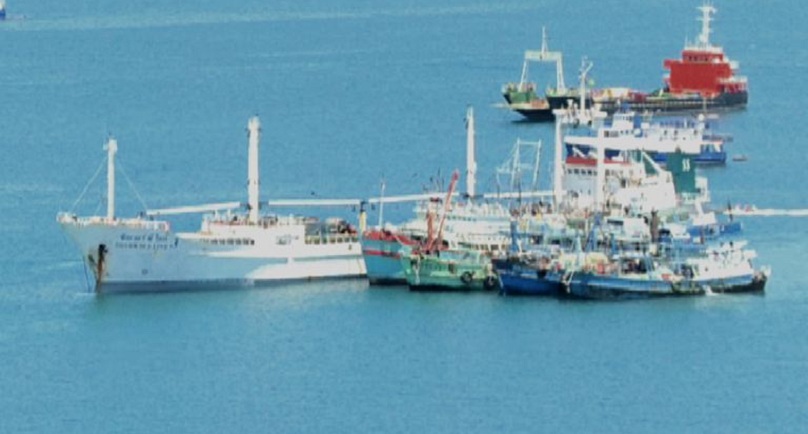U.S. Customs officials have blocked a commercial fishing boat from bringing tuna and other seafood into the United States, citing what they said was the use of forced labor by its operator, a company based in Fiji.
The Customs and Border Protection agency said Wednesday that it had found that operators of Hangton No. 112, a long-liner owned by the Hangton Pacific Co. Pte Ltd., had withheld workers’ wages, kept their identity documents and subjected them to debt bondage.
If the vessel tries to dock at a U.S. port, officials said, its cargo would be seized and held until its operator could prove that the fish were not caught using what the agency has described as “modern-day slavery.”
After three months, the seafood could be destroyed, according to the agency, which said that the boat’s operators would have the option to export the fish to a different country.
The action is part of what the agency called a continuing initiative to intercept imports from companies that exploit workers who face arduous conditions on the job and have no voice to seek fairer treatment.
Troy A. Miller, the acting commissioner of Customs and Border Protection, criticized the practices of the company in a statement Wednesday.
“Foreign fishing vessels like the Hangton No. 112 continue to lure vulnerable migrant workers into forced labor situations so that they can sell seafood below market value, which threatens the livelihoods of American fishermen,” Miller said.
He added that Customs “will continue to stand up against these vessels’ abusive labor practices by preventing the introduction of their unethically harvested seafood into the U.S. market.”
The whereabouts of the boat, the fifth individual vessel blocked by Customs and Border Protection since April 2020, and its crew, were not immediately known Tuesday. It was also not clear whether the vessel, which flies the flag of Fiji, had visited the United States and when.
In addition to the individual vessels blocked this year, customs officials took similar actions against a Chinese fishing fleet in May.
Jitendra Mohan, the general manager of Hangton Pacific Co., which is based in Suva, Fiji, the capital of the island nation in the South Pacific, disputed the allegations in an email.
“There is no truth, and one-sided story by a disgruntled crew who resigned before his contract was completed,” the email said. “He even incited other crew to stop work but no one supported him.”
An online directory for the seafood industry said that the company operates a fleet of long-line vessels and specializes in fresh and frozen yellowfin tuna, bigeye tuna, mahi mahi, wahoo, escolar, albacore, dressed marlin and swordfish. Long-lining is a fishing technique that uses baited hooks connected to a strand of branch lines.
Customs officials said that the company primarily supplies tuna, which can sell for thousands of dollars, especially if it is of the high-quality grades used for sushi.
When asked if the restrictions, known as a withhold release order, apply to the company’s other vessels, the officials said that they were only for Hangton No. 112.
For decades, customs officials said, they were hampered from blocking some companies who used forced labor from importing goods into the United States because of a provision in the U.S. Code called the consumptive demand clause. That clause allowed certain products made using forced labor to be imported into the country to meet demand.
But the Trade Facilitation and Trade Enforcement Act of 2015 repealed the clause, allowing customs officials to intercept all goods produced using forced labor, officials said.
This article originally appeared in The New York Times.


